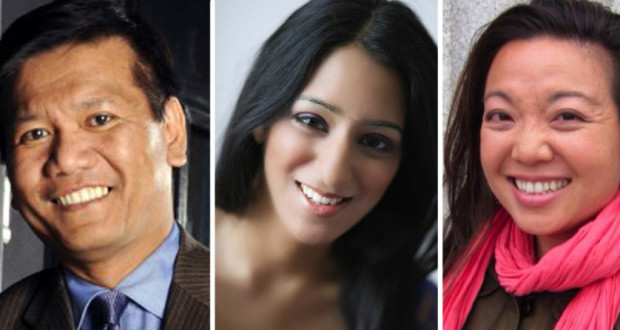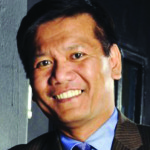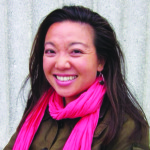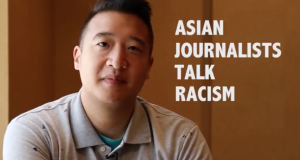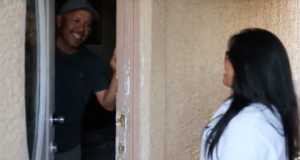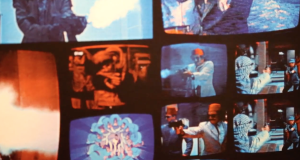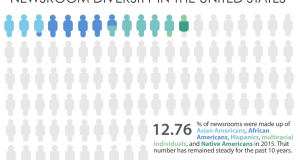VOICES checked in with three Asian-American journalists who have covered campaigns past and present:
SABRINA SIDDIQUI, who covers national politics for The Guardian; TRACY JAN, who covers national politics for The Boston Globe and BOBBY CAINA CALVAN, who was most recently a statehouse reporter for The Associated Press based in Helena, Montana, and previously covered the 2012 presidential election for The Boston Globe. Their comments have been edited for length and clarity.
Have there been specific differences covering the 2016 presidential election versus prior ones?
Sabrina Siddiqui: With Trump, there were moments and continue to be moments in 2016 where no candidate has gone where he’s gone. And with Hillary [Clinton] and the possibility we’ll elect our first woman president, it’s crazier than any of us can remember. It’s also the first social media election, with Twitter, Snapchat, Periscope, etc. We thought 2012 was pretty minute by minute, but now it’s even more so. Does being a minority journalist affect how you write stories?
Does being a minority journalist affect how you write stories?
Tracy Jan: I went to Dearborn, Mich. and I was told by Muslims there that I did one of the most fair jobs of covering that community of anyone on the campaign. I went to a mosque to listen to an imam do a political sermon and then I went to a Trump rally the same day, so I contrasted that. You don’t have to be a minority journalist to think of that, but being a non-white person, I’m aware of different power dynamics and inequalities.
Bobby Caina Calvan: How you cover stories often depends on your own experience. I happen to be an immigrant. I’m neither proud nor embarrassed, it is who I am. So on immigration issues, I like to think I’ve got a certain sensitivity to those issues because of my experiences.
What struggles do you face as a minority reporter?
SS: One of the things that’s frustrating as a minority reporter is if something comes up that you know is offensive, your peers might dismiss it. That’s why we need more minority reporters. Those are the people who can say, “No, this is a story.”
BC: Many people assume that when you’re a person of color, you’re being hired because you’re a person of color. Whenever I go in for a job, I always have a sense that I’m not being seen as the journalist that I am, that I’m not going to be [seen as] aggressive or a good writer or my English won’t be all that great. You can’t prove this, but it’s a feeling you get.
Do you think there’s something that can be done to diversify newsrooms?
SS: I think a lot of people are used to the minority community not viewing journalism as a viable path. The more people see that there are an increasing number of us out there and having our work shared, they’ll see they can be successful.
TJ: It’s important to have diverse ranks in management. The more diverse representation you have in the people in power, the more diverse networks they’re going to cast in terms of talent recruiting.
BC: Newsrooms need to acknowledge that they need to be more inclusive. That’s why organizations like AAJA are so important. We give voice to journalists of color. We, as a group, can push the industry to do better. What would you say to a younger reporter who aims to be where you are now?
What would you say to a younger reporter who aims to be where you are now?
TJ: There’s actually a ton of opportunities in political reporting. In D.C., there’s so many opportunities with Politico, The Hill, Congressional Quarterly, also local newspapers that assign interns to the presidential campaign. Reach out to media organizations with Washington bureaus to see if you could intern there.
 VOICES Publishing from the AAJA National Convention
VOICES Publishing from the AAJA National Convention

